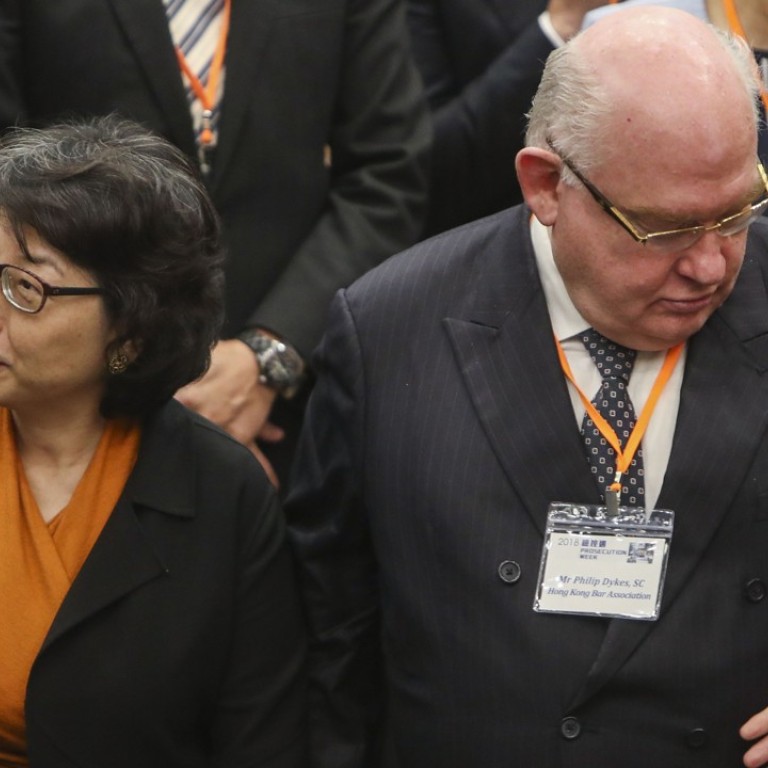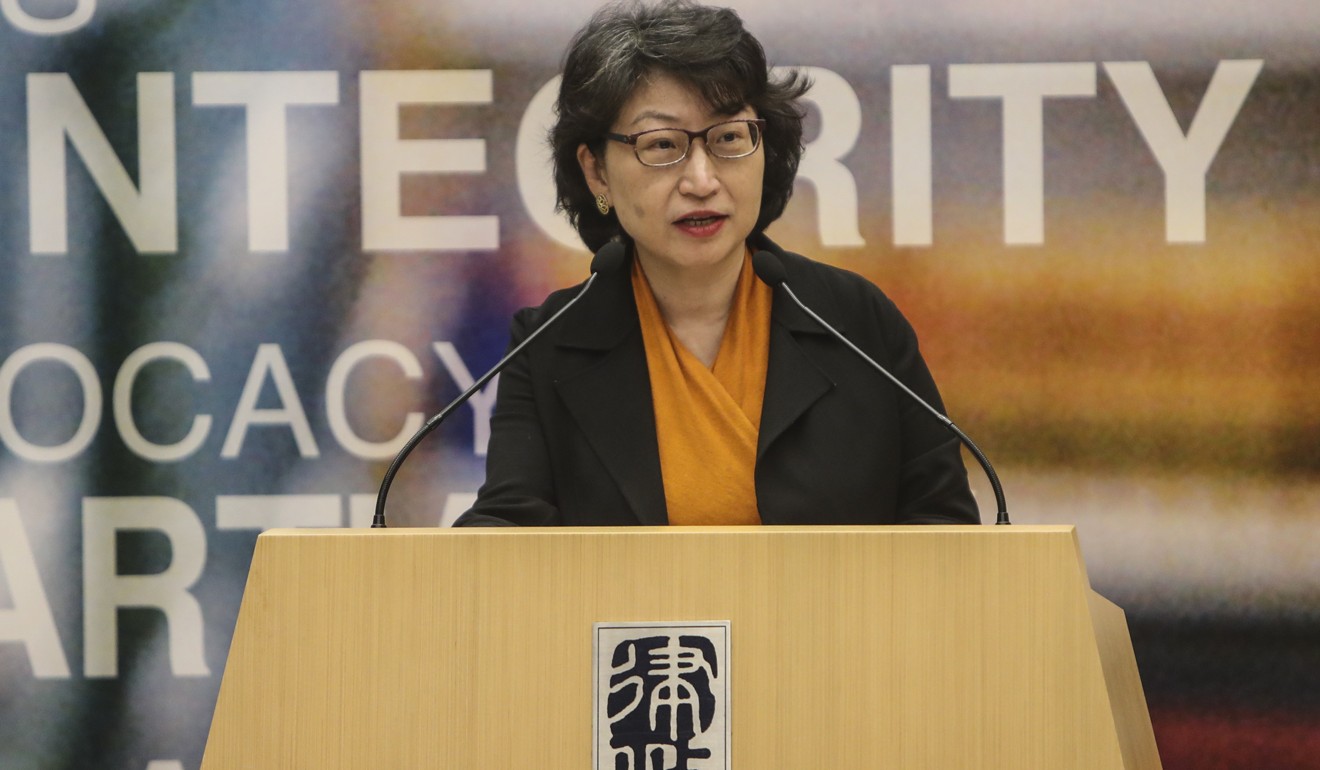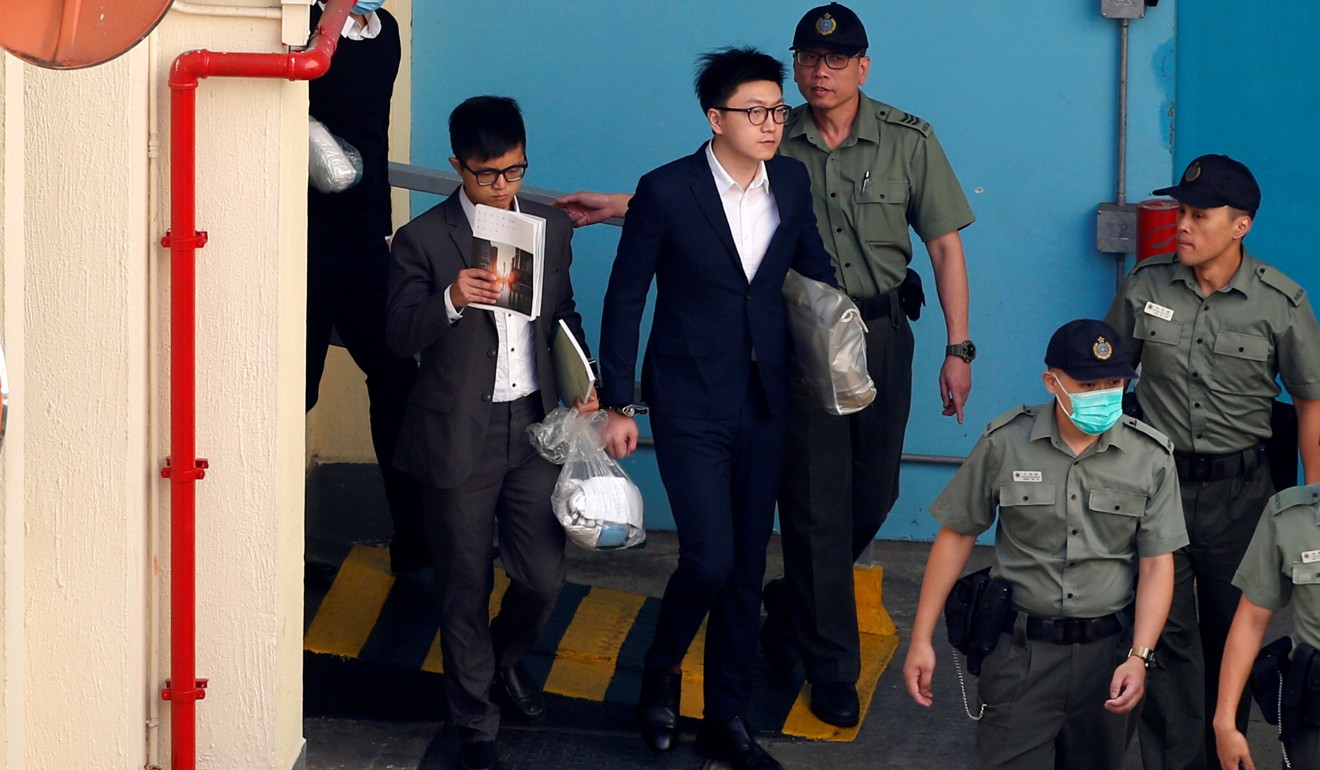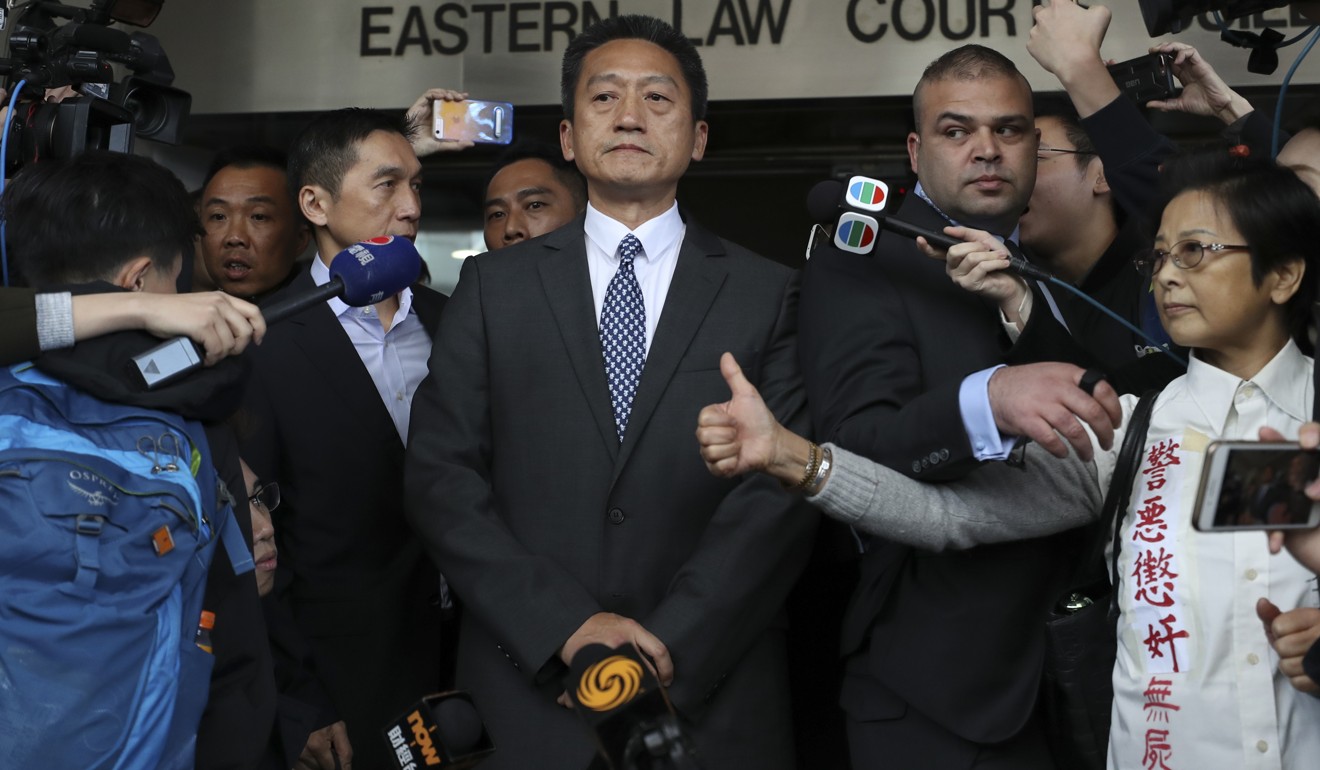
Don’t turn prosecution into persecution, head of Hong Kong barrister body warns
Bar Association chairman Philip Dykes urges care and caution from city’s prosecutors following controversy over recent court rulings against activists
The head of Hong Kong’s professional regulatory body for barristers warned the government on Friday not to turn “prosecution” into “persecution”, even as the city’s justice minister said public violence and “rioting” showed a pressing need to educate people on the consequences of flouting the law.
Bar Association chairman Philip Dykes and Secretary for Justice Teresa Cheng Yeuk-wah were both speaking at a ceremony to mark the start of the “Prosecution Week” of activities to publicise the city’s criminal justice system.
Dykes, addressing an audience of mostly prosecutors, said their job was not to exhaust “all the considerable resources of the state to secure a conviction just because they can do so”.
“This is because the prosecution duty is to seek justice and not merely to secure a conviction,” the prominent human rights lawyer said.

Care and caution were required “so the prosecution does not become in the public eye a persecution”, he added.
But the justice minister said prosecutors were constitutionally and legally required to make fair and impartial decisions “without fear or favour”, and no one was above the law.
“It is not the aim of the prosecution to secure convictions at all costs, nor is the conviction rate a performance indicator for the prosecutor,” Cheng said.
Edward Leung riot sentence: too harsh, or necessary as deterrent?
She called for greater public understanding of the city’s criminal justice system.
“In view of the recent rise in cases involving violence in public processions and the like, some of which turned into riots, it is right that this department should be doing more to better inform the public about the nature of criminal law, the legal system and indeed the legal consequences if the law is breached,” Cheng said.

Second Hong Kong police officer granted leave to appeal against jailing over Occupy assault

Director of Public Prosecutions David Leung Cheuk-yin on Friday stressed that prosecutors must act in accordance with the law and they would not be influenced by irrelevant considerations.
Hong Kong pro-democracy activist Joshua Wong granted bail as he appeals jailing over Occupy protests
“In particular, political or individual interests are of no concern for any prosecutor. All prosecutorial decisions are made on the highest professional standard considering only the law, the evidence and the public interest,” he said.
Leung has personally led several high-profile cases, including his department’s appeal against a lenient community service sentence for Joshua Wong for unlawful assembly during the Occupy protests. Wong was later freed from jail by the city’s top court, which also issued tougher sentencing guidelines for such offences.
The justice minister left Friday’s event without answering questions from the media.


